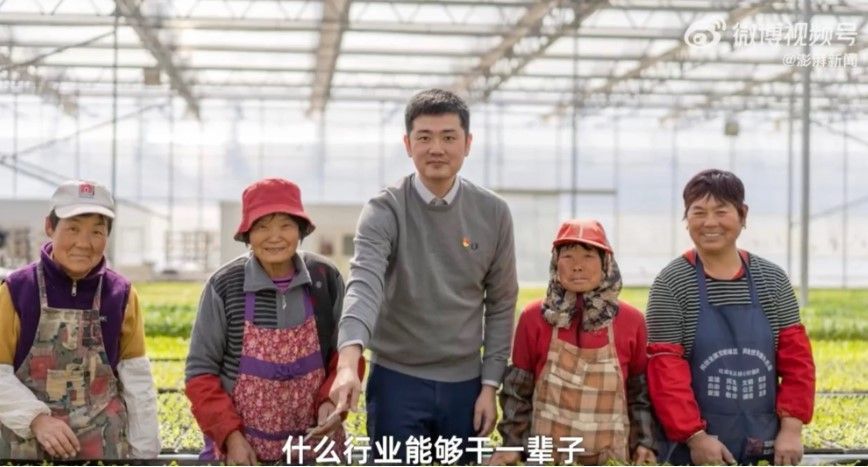Former corporate worker turned high-tech farmer redefines goat birthing with AI
Huang Zhen isn't your typical farmer.

A few minutes every morning is all you need.
Stay up to date on the world's Headlines and Human Stories. It's fun, it's factual, it's fluff-free.
The backstory: Huang Zhen was just your average finance guy, climbing the corporate ladder in Shanghai. Fast forward 14 years, and he's quit his job to become a farmer on Chongming Island. But he isn't your typical farmer, and his farm isn't your regular farm.
Let's back up a bit. During goat birthing season, there's anywhere from a 4-10% mortality rate (depending on the season). So Huang, believing there was a solvable problem here, co-developed an AI system with Chinese food delivery giant Meituan's visual intelligence team. It uses sensors and AI to monitor the goats and warn farmers when they are ready to give birth, helping reduce the risk of complications and death for the goats.
With more than 50 high-definition cameras installed across the farm, Huang's AI system has already helped save around 600 baby goats per year. But Huang's ultimate goal is to modernize farming and improve the lives of farmers.
The development: Now, he's taking the agriculture industry by storm with his innovative use of AI technology on the farm. Last week, a video of him explaining his modern farm went viral on Chinese social media. His use of AI and advanced technologies has set a new standard for contemporary farming and is a model for other farms to follow.
Key comments:
"The farm currently has 2,000 core breeder goats. With the technology we can save about 600 baby goats a year," said Huang Zhen in the viral social media video.
"Ensuring a stable and safe supply of grain and important agricultural products are of the utmost importance to establish an agricultural powerhouse," said Chinese President Xi Jinping at the central rural work conference, speaking on China's agricultural production.
"Food prices are generally stable, but costs of agricultural materials such as potash [used in fertilizer] are rising, and there are risks like natural disasters. So the motivation to cultivate is declining," said Hu Peisong, an agronomist at the Chinese Academy of Engineering and director of the China Rice Research Institute, to digital daily The Paper, speaking on the threat to China's food security.




Comments ()